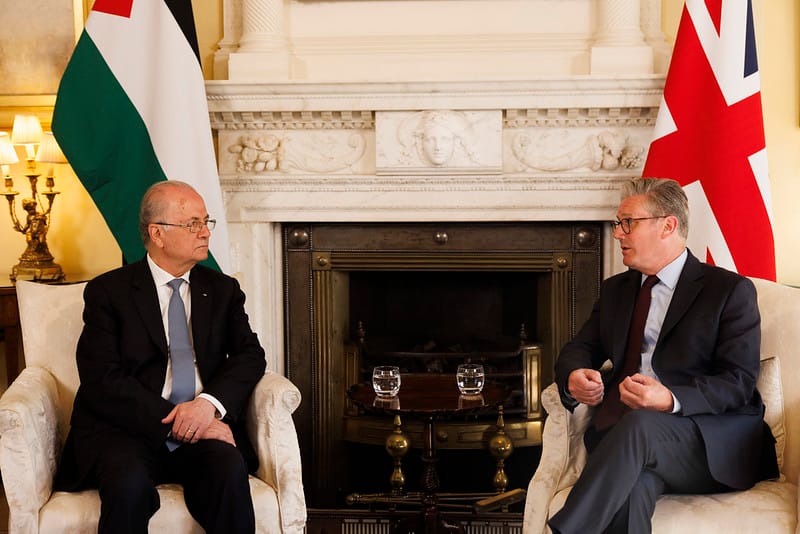
Brazil goes to the polls this Sunday for a tight presidential runoff between far-right president Jair Bolsonaro and leftist former president Luiz Inácio Lula da Silva. Anyone who has followed the rise of Bolsonaro could not have missed the widespread use of Israeli flags by his supporters, everywhere from street protests to Twitter handles. In this regard, Brazil is no different from the US or India, where Israel is paradoxically held up as the epitome of militaristic ethnonationalism by the same far-right groups that obsess about “globalists” and “cultural Marxism”, anti-semitic conspiracy theories that have similarly proliferated in Bolsonaro’s Brazil. Yet there also are more unique aspects of the way Bolsonaro’s movement has engaged with Israel and Jews.
A key part of this phenomenon is the growing importance of Evangelical Christianity in Brazil. Almost a third of Brazilians now identify as Evangelical, compared to 50% of Catholics (down from 83% in 1980). If current trends continue, in a decade Evangelicals will outnumber Catholics in the world’s “largest Catholic country”. Brazil’s Evangelicals are highly diverse – however, taken as a whole, they skew to the right politically. According to the latest polling, about two-thirds intend to vote for Bolsonaro on Sunday.
A highly visible segment of the Evangelical movement has adopted Judaic iconography in increasingly explicit ways. Take Edir Macedo, founder and leader of the Universal Church of the Kingdom of God, one of Brazil’s largest Evangelical denominations, and owner of Brazil’s second-largest media empire with an estimated fortune of $400 million. Macedo’s church is headquartered in the Temple of Solomon, a garish mega-church in central São Paulo that is supposedly a faithful replica of its biblical namesake. The walls of the temple are adorned with giant menorahs and Macedo himself has taken to wearing a yarmulke [skullcap] and tallit [prayer shawl]. While he has been politically amorphous in the past, sometimes endorsing candidates from Lula’s Workers’ party, he endorsed Bolsonaro in 2018 and has done so again this year.
The president’s own religious convictions are harder to pin down, but display a similar mish-mash of influences in which Israel takes a prominent place. Bolsonaro was raised a Catholic and still identifies as one. His wife Michelle is Evangelical, however, and Jair cultivates a following among her co-religionists through his regular participation in public rituals with high-profile Evangelical pastors – among these a baptism ceremony in the river Jordan during a trip to Israel in 2016.
Daniel Douek, a social scientist and director at the Israel-Brazil Institute, has described Bolsonaro and his followers’ exaggerated, religiously-inflected fondness for Jews and Israel as being grounded in the fantasy of an “imaginary Jew”. This imagined figure is deeply religious and politically conservative, bearing little resemblance to the diversity of real Jews in Brazil and elsewhere. Nor, indeed, does it acknowledge the many ways in which mainstream Israeli society departs from Bolsonaro’s politics: for example, Douek and others have contrasted Bolsonaro’s Covid denialism to Israel’s proactive lockdown and vaccine-rollout measures, as well as stark differences on issues such as LGBTQ+ rights and abortion.
The figure of the Jew has also appeared more tangibly during Bolsonaro’s presidency, in the form of allies who can offer a convenient defence against accusations of anti-semitism. One of these is Filipe Martins, a Bolsonaro adviser who was caught on film making what looked like a white power symbol (though he was later cleared of the charge). Martins took to Twitter to defend himself from the accusation: he was adjusting his jacket. In any case, he argued, he could not possibly be a white supremacist – because he’s Jewish. When a follower asked him to confirm his Jewishness, he enigmatically replied, “Yes, but Christian,” adding that only part of his family were practising Jews. When journalists were unable to identify any Jewish connection, Martins assured them that his family tree would prove he was Jewish, leading some to suspect that he was claiming descent from New Christians, Portuguese Jews who converted during the Inquisition and later settled in Brazil.
Another case is that of Abraham Weintraub, Bolsonaro’s education minister between 2019 and 2020. Coming from the more extreme faction of Bolsonaro’s movement, Weintraub declared his intention to rid Brazil’s universities of “cultural Marxism”, a term widely associated with anti-semitic conspiracy theory. Following a string of controversial comments and administrative failures, Weintraub was soon forced out of office. Although his passport had been confiscated by the supreme court, which was investigating him as part of an inquiry into the dissemination of fake news, Weintraub used his diplomatic passport to flee to the United States. The Brazilian media widely reported the disgraced Weintraub as being Jewish – despite the fact that, while his father was Jewish, his mother was Catholic, and Weintraub himself does not identify as Jewish. For Douek, the public perception of Weintraub reflects a reimagining of Jewishness in Bolsonaro’s Brazil as not an ethno-religious identity but a political-ideological one – and one that is necessarily rightwing.
Meanwhile, Brazil’s real Jewish population has been genuinely split over Bolsonaro. This divide came to a head at a now notorious event at Rio de Janeiro’s Hebraica Club (a Jewish social club) in 2017. Anthropologist Misha Klein and sociologist Michel Gherman have described the incident as a watershed moment for Brazil’s pluralistic Jewish community. Soon after Bolsonaro first announced his presidential bid, some Jewish supporters in São Paulo invited him to speak at the local Hebraica. This provoked a petition among his opponents within the community, who succeeded in blocking the event. However, a similar event went ahead soon after in Rio de Janeiro, where it was met with lively protests by anti-Bolsonaro Jews. A video of the Hebraica audience applauding Bolsonaro’s speech – a characteristically inflammatory tirade, including a derisory remark about Afro-Brazilian Quilombo communities – went viral, reinforcing the perception of Jews’ universal support for Bolsonaro and prejudice against other minorities.
Being “inside” or “outside” the Hebraica has since become a shorthand for disagreements about Bolsonaro within Brazil’s Jewish community. On a recent episode of E Eu Com Isso? [What’s it got to do with me?], a podcast on Jewish themes in Brazil, Claudia Heller of the Jewish Observatory of Human Rights invoked the phrase. Discussing a recent report that she co-edited, which showed a significant increase in anti-semitic and neo-Nazi incidents in Brazil during Bolsonaro’s presidency, Heller affirmed her hope that it would encourage a change of heart among Bolsonaro’s Jewish supporters: “I don’t think they’ll stay inside the Hebraica. Maybe they won’t join the people outside either. But maybe they’ll just stay at home, which is no small thing.”
Ahead of Sunday’s runoff, and following a surprisingly strong first-round showing, Bolsonaro appears to be gaining ground on former president Lula of the centre-left Workers’ party. Whatever the final outcome, Jewish voters will barely dent it – the population is around 120,000 in a country of some 210 million. Moreover, how they’ll vote is difficult to gauge, as Brazilian polling companies typically group Jews into the religious category of “other”. Based on a Datafolha poll conducted in 2018, Klein and Gherman affirm that Jewish voters broadly mirrored the behaviour of white, middle-class voters in 2018, a demographic that heavily favoured Bolsonaro. However, there are signs that this year many more may be “outside the Hebraica”.
Brazil’s Jewish population is heavily concentrated in just three cities: São Paulo, Rio de Janeiro and Porto Alegre. In all three, the districts where Jews have historically settled saw heavy swings away from Bolsonaro in the first round. Elsewhere, I have identified a broad divergence in Brazil’s southeastern and southern regions between a predominantly metropolitan, “institutionalist” middle class that has swung away from Bolsonaro, and a largely small-town, “revanchist” middle class that continues to support him. This admittedly broad-brush geographical analysis would imply that Jewish voters are more prevalent in the former category.
Another clue comes from the very small (around 2,000-strong) Brazilian electorate in Israel. While many were quick to highlight the fact that Bolsonaro won among voters in Israel, his margin in the former was surprisingly small – 45% to Lula’s 41%. This represents a huge fall since 2018, when he won 77% in the second round. If we consider that the Israel-based Brazilian electorate may also include a non-trivial number of Evangelical Christians, who we know still skew heavily towards Bolsonaro, we might infer that many Jewish voters have turned against him in large numbers this time around.
Unfortunately, given the way Bolsonaro and his supporters loudly continue to claim Jews as allies, this possible shift may do little to change wider perceptions. Much to the detriment of Brazil’s real Jewish population, Bolsonaro’s imaginary Jews remain far more politically visible than they do. ▼
Matthew Richmond is an urban geographer and research fellow at the London School of Economics Latin America and Caribbean Centre.
Author
Matthew Aaron Richmond is a geographer, sociologist and Latin Americanist. He is a Postdoctoral Researcher at the State University of São Paulo and Visiting Fellow at the London School of Economics.
Sign up for The Pickle and New, From Vashti.
Stay up to date with Vashti.



